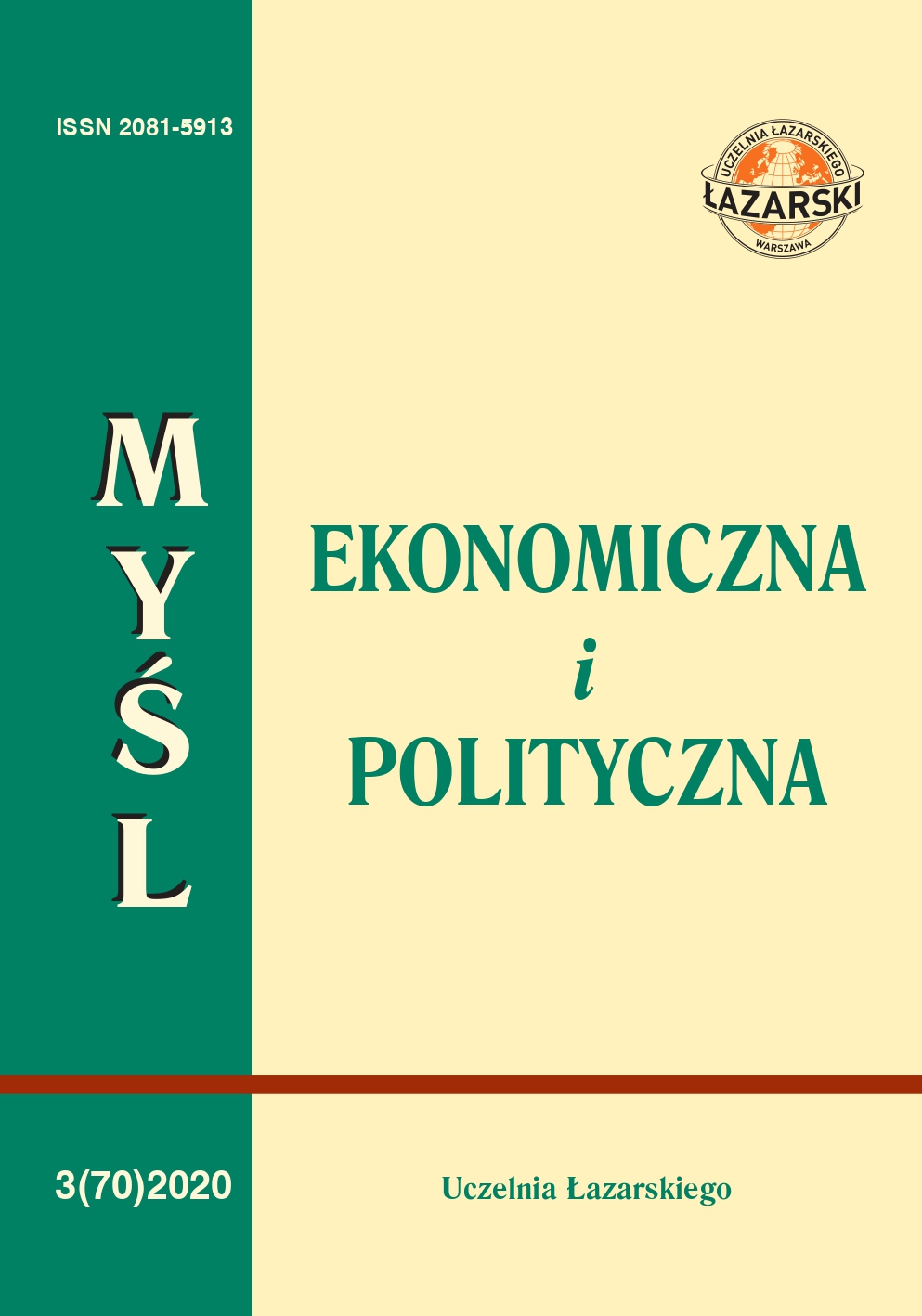Abstrakt
Praca we współczesnym przedsiębiorstwie przybiera coraz bardziej złożony, dynamiczny i globalny charakter. Praca zdalna i zespoły wirtualne stały się obecnie niezbędnymi częściami składowymi nowoczesnych organizacji korporacyjnych. Badania mają na celu przeanalizowanie głównych problemów z jakimi zmierzyli się pracownicy gruzińskiego sektora publicznego i prywatnego. Głównym celem artykułu jest określenie aktualnej sytuacji pracowników sektora publicznego i prywatnego w Gruzji w związku z pracą zdalną zgodnie z restrykcjami wprowadzonymi w kraju w celu ograniczenia zagrożenia rozprzestrzeniania się koronawirusa. Ponadto, badania mają na celu identyfikację i analizę czynników wpływających na efektywność pracowników świadczących pracę zdalnie oraz w jakich warunkach praca zdalna i wirtualne zespoły mogą być opłacalną inwestycją w przedsiębiorstwach sektora publicznego i prywatnego. Badania wykazały, że przed pracownikami w zdalnym systemie pracy pojawiają się wyzwania takie jak wydłużony czas pracy, niesprawiedliwa redystrybucja funkcji i obowiązków, kontrola jakości wykonanej pracy, problemy z Internetem, dostęp do systemów organizacyjnych, brak potrzebnego wyposażenia technicznego, nieproduktywność oraz brak komunikacji bezpośredniej (twarzą w twarz). Jeśli chodzi o metodologię, niniejsze opracowanie jest oparte na analizie dostępnej literatury oraz wynikach badań statystycznych przeprowadzonych w oparciu o sondaż wybranych losowo 187 respondentów zatrudnionych w różnych gruzińskich firmach sektora publicznego i prywatnego. W rezultacie, menadżerowie powinni mieć świadomość, jakie metody nowoczesnej komunikacji, technologii i przywództwa można efektywnie i skutecznie stosować w celu poprawy jakości pracy wirtualnej świadczonej przez pracowników. Artykuł kończy konkluzja, że aby pracować skutecznie, należy równolegle stosować podejście technologiczne, jak i organizacyjne.

Utwór dostępny jest na licencji Creative Commons Uznanie autorstwa – Użycie niekomercyjne – Na tych samych warunkach 4.0 Międzynarodowe.
